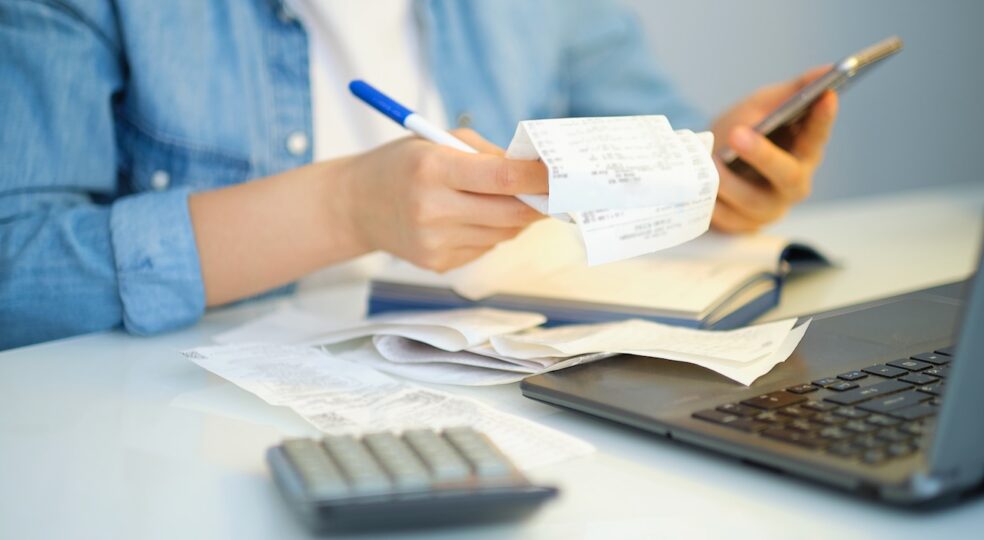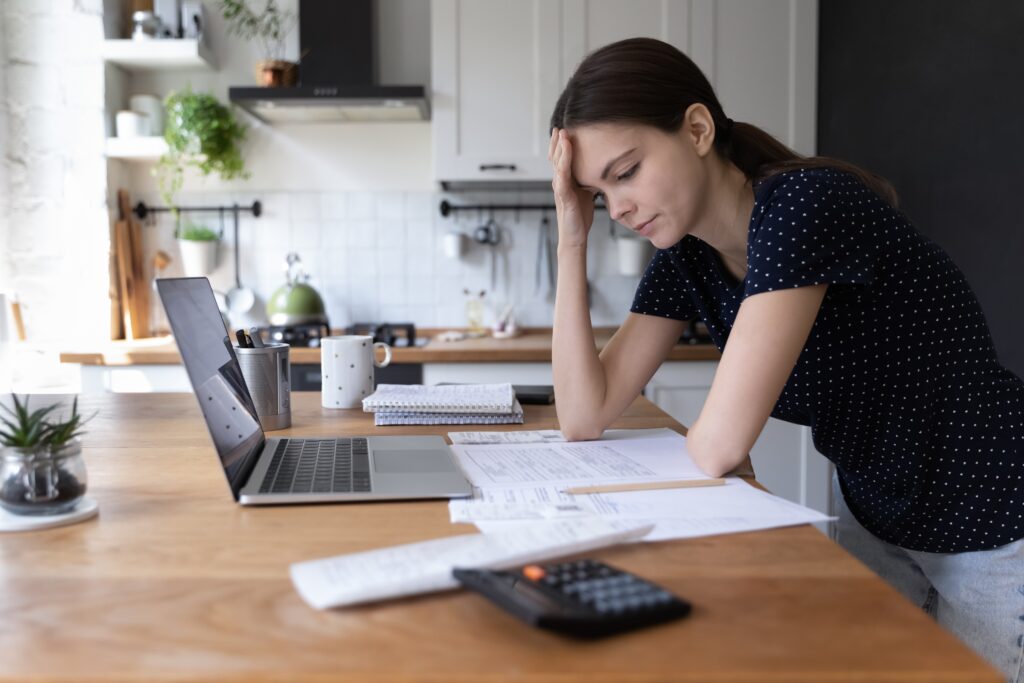
Is your wallet low at the end of the month and you don't know where all your money is? Then you should keep a budget book and note down your income and expenditure. This will give you a comprehensive overview of your financial situation, identify potential savings and enable you to plan for the long term.
Many people quickly lose track of their financial situation. They underestimate or overestimate their budget. As a result, they buy too much or postpone important purchases for no reason. Ultimately, this leads to frustration or ends in a debt trap. To prevent this from happening, you should keep a budget book and a Feeling for your finances.
Do you know how much is left over from your monthly salary and what funds you have at your disposal? Many people shop without thinking about their spending. In the end, the account is empty. If you want to keep a budget book, the first thing to do is to Inventory. Write down how much money you have and how much you can spend.
The budget is the money that remains after you deduct regular expenses, such as energy and rent, from your income. You can freely dispose of this money. If you exceed your budget, you will be in the red. If you pay by card, your account will be overdrawn. If you spend less, you have a surplus that you save.
It is interesting to monitor your budget over the months. You will quickly notice that there are times when you spend more, for example during the outdoor pool and vacation season. It therefore makes perfect sense to save in order to Deficits in cost-intensive months.
Keeping a budget book and keeping an overview in this way is good for your psyche. Your mindset changes because the records give you a sense of security. You gain control over your finances and realize that you decide your own budget. With the ability to control, your Self-confidence and you learn that you are responsible for your own expenses, that you can shape and mold them.
Are you in the doldrums? Then you're like many others who don't yet keep a budget. You buy what you like without paying attention to the price. The budget book shows you where your weaknesses lie and what you spend too much money on.
Surprisingly, it's often not the big, expensive purchases that put a strain on your budget. If you make a note of all your expenses, you will often quickly notice that the little things add up to a considerable sum over the course of the month. These include snacks, magazines, cigarettes and ready-made coffee.
Or maybe you generally go out to restaurants too often or spend too much money on cosmetics. It's often the impulse purchases that hit the books. Or do you find it difficult to control yourself with the tempting offers in the boutiques, even though your closet is full? Almost everyone has some kind of vice. The budget book helps you to expose the weak points.

The small but frequent expenses in particular offer great savings potential. If you take a snack from home to work, you end up paying much less than if you buy your food at the bakery or snack bar. Especially the popular ready-made coffee from the vending machine adds up over the course of the month. Assuming it costs 1.50 euros and you treat yourself to two cups every day, that's 60 euros for around 20 working days a month and over 600 euros a year.
In the supermarket, it's best to only buy what you absolutely need. But also let yourself be guided by the special offers. Think about what lasts how long and how much you need. Hamster purchases are worthwhile if the price is particularly low.
Also note the table with the fixed expenses in the budget book. You can save on heating costs by turning the temperature down at night. Compare electricity, telephone and internet tariffs. It also makes sense to check your insurance.
We often spend money on things that we no longer use or only use insufficiently. This includes, for example, memberships in clubs that you are no longer active in. Or you have a magazine or newspaper subscription that hardly offers you any added value because you now get all your information online.
Keeping a budget book only really makes sense over a longer period of time. You can identify potential savings and plan your spending over the long term. It also gives you an overview of your expected financial development. This makes it possible to plan investments wisely and determine the right time for a major purchase.
If you know what you save in a certain period of time under normal circumstances, you will be able to estimate how long it will take you to accumulate the money for something that is important to you. You will also be able to change your purchasing behavior and adapt it to your wishes. If you save a higher amount every month from now on, you will get closer to your goal, such as buying a new car, more quickly.
Keeping a budget book doesn't mean that your expenditure has to match your income and that your accounts have to add up to zero. It's best to set up an emergency fund. This is a cash reserve for emergencies, a nest egg, as they used to say. The financial cushion cushions you if you unexpectedly run into difficulties. Reserves are also important for your psyche, because it's a good and secure feeling to have something in reserve.
To build up an emergency fund, you always set aside a certain amount for a rainy day. Most people receive their wages or salary at the end of the month. If you want to keep a budget book, immediately deduct the emergency fund from your income. You won't be tempted to spend the money.
It is best to pay the emergency money into a savings account set aside for this purpose or keep some of it at home. It makes sense to keep the emergency fund in such a way that it is safe from your access. You only use the money in genuine emergencies and it is not part of the general budget.
Keeping a budget book is easier than you think. You can use a notebook or book or opt for a loose-leaf binder. The easiest way to record your financial situation is to use a table. There is a column for each item, for example for electricity, water, rent, food and clothing.
Add up your income. This includes wages and salaries, child benefit and unemployment benefit.
This is where you record ongoing costs that are incurred on a regular basis. These include rent, electricity and telephone costs, membership fees and insurance expenses. It is best to create a table for each month. You convert the costs incurred once or twice a year so that they are charged proportionately to the respective month.
Now determine the budget you have left for variable expenses. This is the money you spend on restaurants, going to the movies or buying clothes, for example. To calculate your budget, subtract your fixed expenses from your income. If you are clever, you keep a savings amount.
Write down what you have spent on clothes, food, drink, swimming pool visits and the like.
You subtract the monthly variable expenses from the budget and see how much is left over. If it is too little, then look for ways to save in order to build up sufficient reserves.
Special income includes Christmas and vacation bonuses as well as gifts of money that you receive unscheduled. The proceeds from the sale of used items should also be noted here. You book the special income at the end, because unfortunately you cannot count on it regularly. The special income increases your budget or the savings portion.
If you want to keep a budget book, you will not only benefit from the detailed records, but you will also use a tool that helps you to make your financial decisions more consciously. By setting clear goals with a positive mindset and use practical savings strategies, you will achieve financial stability and material freedom at the same time. Our Masterclass "Never worry about money again" shows you the right way.

